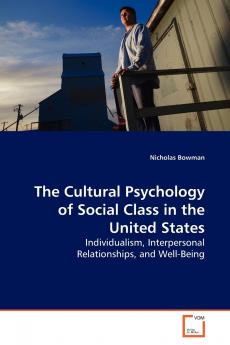English
Paperback
₹5995
(All inclusive*)
Delivery Options
Please enter pincode to check delivery time.
*COD & Shipping Charges may apply on certain items.
Review final details at checkout.
Looking to place a bulk order? SUBMIT DETAILS
About The Book
Description
Author
Many scholars and legislators approach issues ofsocial class from a deficit perspective framingsocial class differences almost exclusively in termsof the resources and behaviors that working-class orlower-class people lack. In contrast this book takesa cultural psychological perspective by exploring theways in which Americans from relatively lower andhigher social class backgrounds define themselvestheir friendship and kinship groups and even what itmeans to be well. Using evidence from a variety ofsources it is argued that the nature ofindividualism interpersonal relationships andwell-being varies substantially across Americansocial class groups. These differences are apparentamong national samples of adults and also amongundergraduate students from various backgrounds andinstitutions. This book can be useful to collegepractitioners faculty and administrators who wantto better understand their diverse students as wellas to psychologists sociologists anthropologistsand others who are generally interested in issues ofsocial class psychology and culture.
Delivery Options
Please enter pincode to check delivery time.
*COD & Shipping Charges may apply on certain items.
Review final details at checkout.
Details
ISBN 13
9783639164169
Publication Date
-11-06-2009
Pages
-136
Weight
-195 grams
Dimensions
-150x220x7.59 mm








